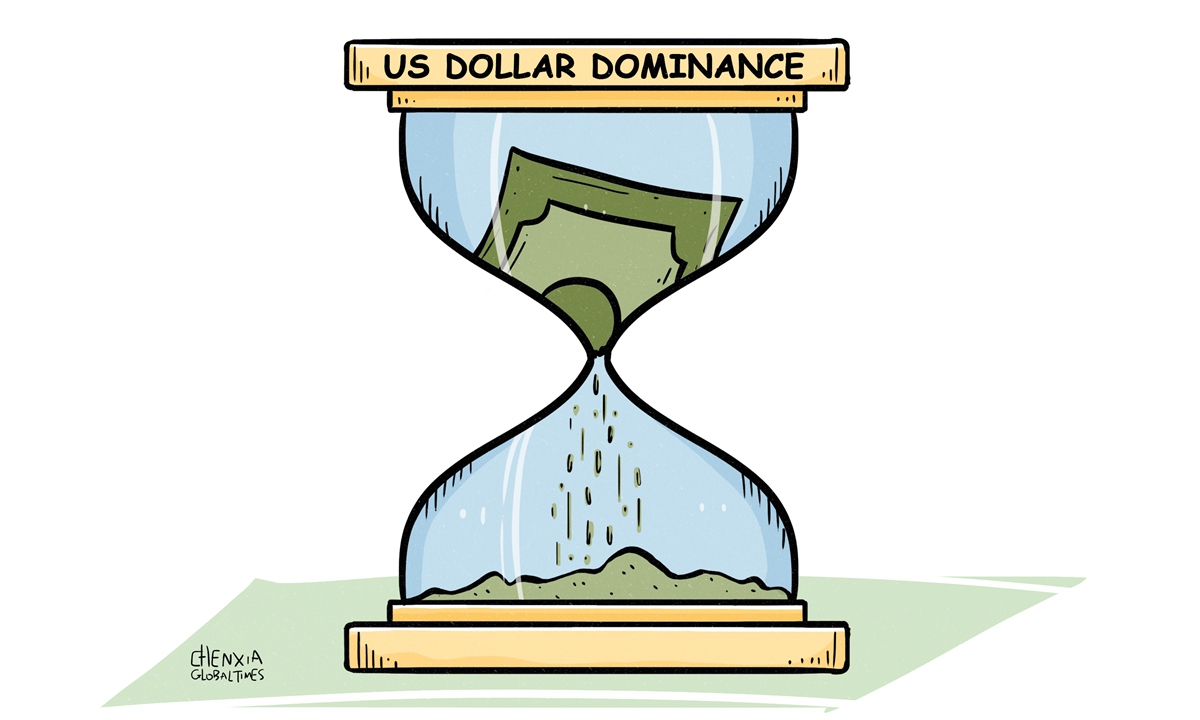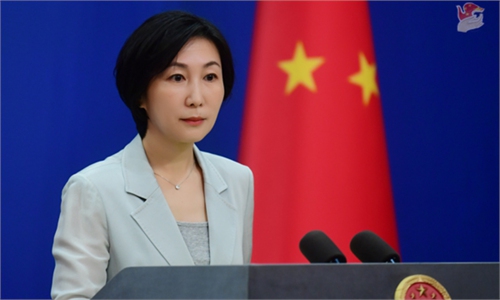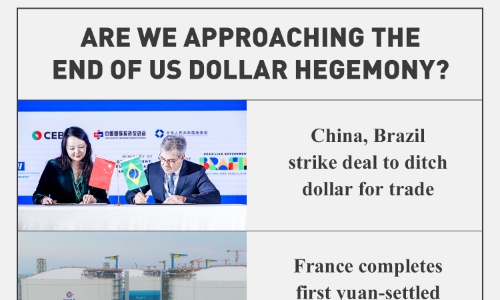
Illustration: Chen Xia/Global Times
China and Brazil have reached a deal to trade in their currencies, the AFP reported, citing the Brazilian government on Wednesday.The deal will allow China and Brazil to carry out trade and financial transactions directly in the Chinese yuan or the Brazilian reais, instead of using the US dollar as an intermediary. "The expectation is that this will reduce costs... promote even greater bilateral trade and facilitate investment," the Brazilian Trade and Investment Promotion Agency (ApexBrasil) said in a statement.
As China is Brazil's biggest trading partner recording a record $150.5 billion in bilateral trade in 2022, it goes without saying that the deal comes from needs related to strong momentum of bilateral trade between the two countries.
But more importantly, from the perspective of the global monetary system, the move may mark a significant development of the trend toward de-dollarization across the world, as countries are trying to trade in non-dollar currencies and seeking to diversify their foreign exchange reserves.
With the Bretton Woods system and the petrodollar system, the dollar has evolved from a dominant payment, settlement and investment vehicle into a tool of political blackmail and coercion. By weaponizing its dollar hegemony, the US can not only arbitrarily impose unilateral sanctions on other countries, but can also harvest global wealth and export its own risks to the rest of the world through irresponsible monetary policies.
But every hegemonic currency system has its day of collapse. It is not Russia, China, India or any other country, but the US itself that sets off the inevitable trend of the end of the dollar dominance, which may be what many American strategists and economic pundits are worried about.
The sweeping US sanctions on Russia in the wake of the Russia-Ukraine crisis, which not only froze the overseas assets of Russia's financial institutions, but also cut off the connection between the SWIFT system and most Russian banks, sent a warning to the rest of the world about risks of the US using the dollar as a tool for geopolitical gain. The more the US adopts hegemonic means to achieve its purposes, the more eager the international community will be to get rid of the excessive reliance on the dollar. Fearing the risk of being dragged into similar sanctions in the future by dollar hegemony, countries around the world have been seeking to replace the SWIFT system to avoid US monetary coercion, and the momentum has become increasingly obvious and strong.
For instance, at an official meeting of all ASEAN Finance Ministers and Central Bank Governors that kicked off on Tuesday, top of the agenda are discussions to reduce dependence on the US dollar, euro, yen, and British pound from financial transactions and move to settlements in local currencies, according to ASEAN Briefing.
In January, South African Foreign Minister Naledi Pandor said in an interview with Sputnik that the BRICS wants to find a way of bypassing the dollar to create a fairer payment system that would not be skewed toward wealthier countries.
Saudi Arabia's finance minister Mohammed Al-Jadaan also said in January that his country is open to discussions about settling oil trade in currencies other than the US dollar.
In addition to these de-dollarization signs, India and Russia have taken a major step toward non-dollar transactions, which may be an encouragement for countries that are considering the move. Indian customers have paid for most Russian oil in non-dollar currencies, including the United Arab Emirates dirham and more recently the Russian rouble, Reuters reported in March, citing multiple oil trading and banking sources. The transactions in the last three months total the equivalent of several hundred million dollars.
Another important sign of the accelerated de-dollarization efforts is that countries including some of the US allies have reduced their holdings of US debt to diversify their foreign exchange reserves. The dollar weight in foreign exchange reserves has fallen to around 60 percent, a relatively low level over past decades, according to the IMF's Currency Composition of Foreign Exchange Reserves data for the third quarter of 2022.
While the fact that the dollar remains the most frequently used currency in the world will not change in the foreseeable future, the trend that more and more countries will consider and pilot trade in non-dollar currencies is also unchangeable. History tells us that the decline of hegemony often begins with its currency.



